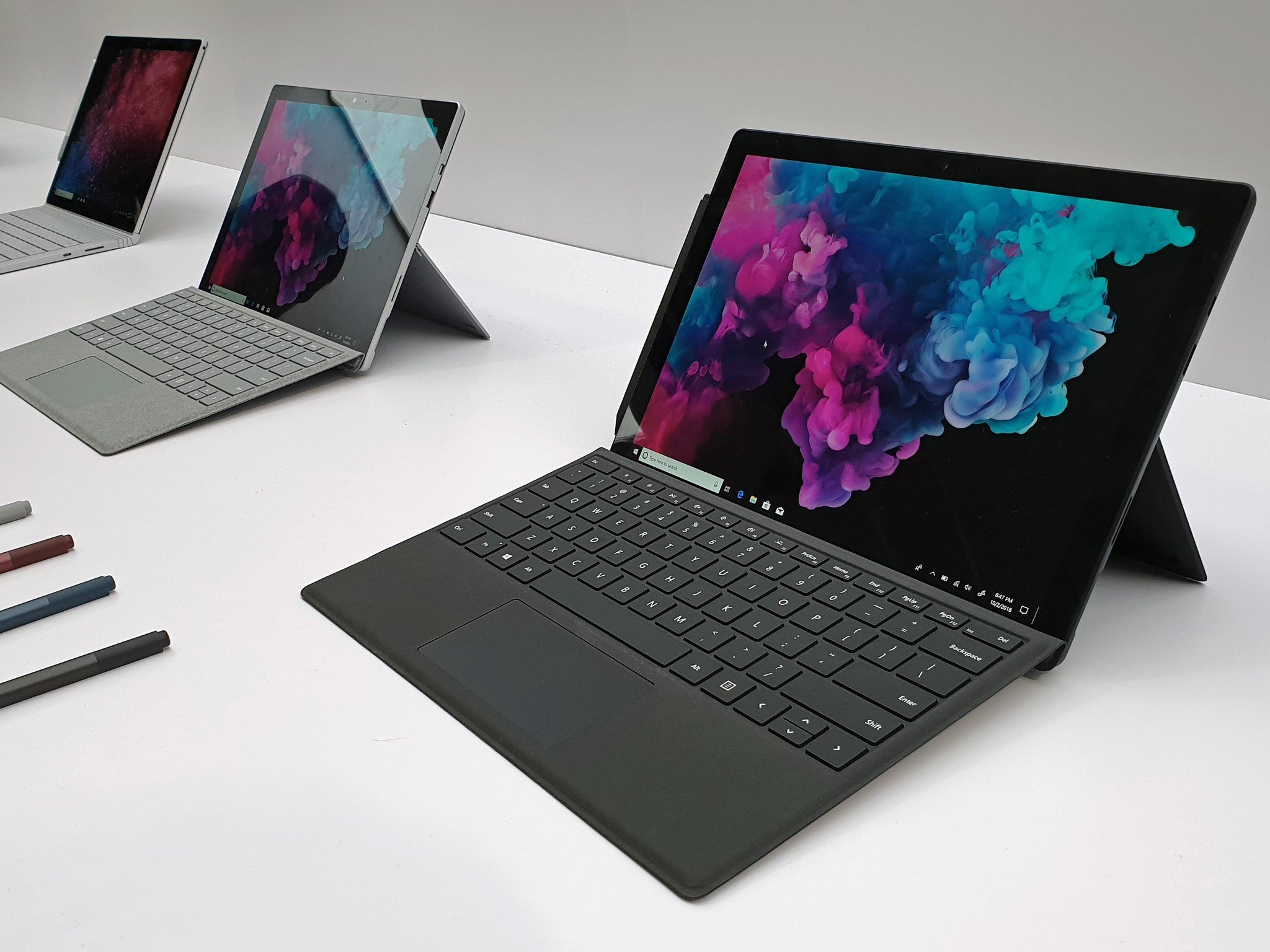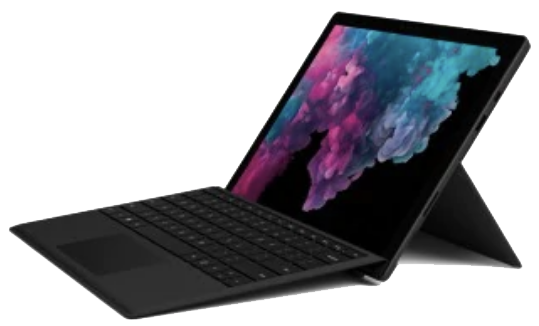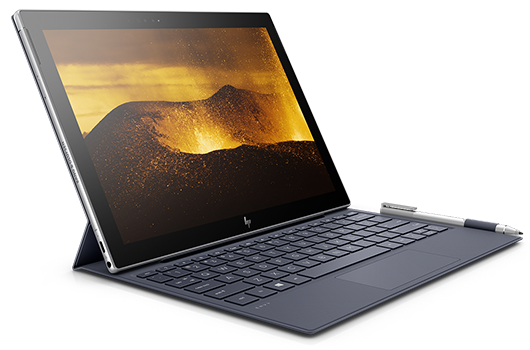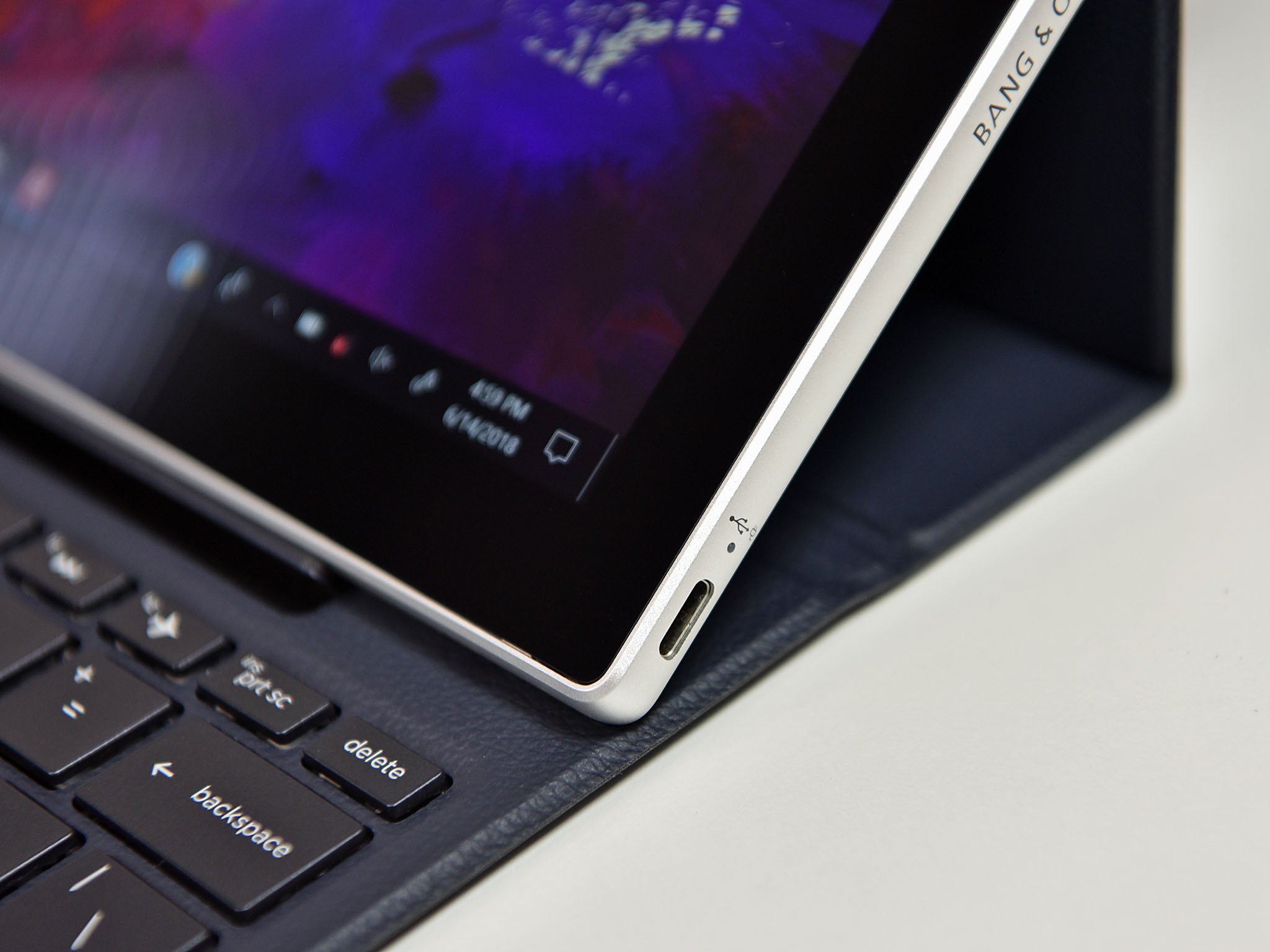Surface Pro 6 vs. HP ENVY x2 (Intel): Which should you buy?

All the latest news, reviews, and guides for Windows and Xbox diehards.
You are now subscribed
Your newsletter sign-up was successful

Latest Surface 2-in-1
The Surface Pro 6 doesn't yet have LTE support and its Type Cover and Surface Pen are sold separately, but it has a far better design than the Intel-based ENVY x2, its display has a higher resolution, and it has better performance hardware configurations available.
Pros
- IR camera for Windows Hello
- High-resolution touch display
- 165-degree kickstand
- Excellent keyboard and touchpad.
- Better performance than ENVY x2.
Cons
- No LTE connectivity yet.
- Keyboard and pen sold separately.

LTE-capable 2-in-1
The Intel version of HP's ENVY x2 comes with LTE support plus a keyboard and pen included in the price, but unfortunately, the awful keyboard design holds it back. There are minimal configuration options, but it does come with two USB-C ports and gets excellent battery life.
Pros
- LTE connectivity available
- Two USB-C ports
- Active pen and keyboard included.
Cons
- Keyboard and touchpad are awful.
- Lower-res display than Pro 6
- No IR camera
The Intel version of the HP ENVY x2 has some unfortunate design choices that really put it at a disadvantage to the Pro 6. However, it's still a contender in the 2-in-1 space; let's see how it compares in all aspects to the new Surface Pro 6.
Surface Pro 6 vs. HP ENVY x2 (Intel) tech specs
| Header Cell - Column 0 | Surface Pro 6 | HP ENVY x2 (Intel) |
|---|---|---|
| Processor | 8th Gen Intel Core i5-8250U Intel Core i7-8650U | 7th Gen Intel Core i5-7Y54 |
| RAM | 8, 16 GB | 4 GB |
| Storage | Solid-state drive 128, 256, 512 GB 1 TB | Solid-state drive 128 GB |
| Display size | 12.3 inches Touch | 12.3 inches Touch |
| Display resolution | 2,736 x 1,824 3:2 aspect ratio | 1,920 x 1,280 3:2 aspect ratio |
| Graphics | Intel UHD Graphics 620 | Intel HD Graphics 615 |
| Ports | USB-A 3.0 Mini DisplayPort 3.5 mm audio Surface Connect MicroSD card reader | Two USB-C 3.1 nano-SIM 3.5 mm audio microSD card reader |
| LTE | No | Yes Intel XMM 7360 |
| Biometrics | IR camera for Windows Hello | IR camera for Windows Hello |
| Battery | Up to 13.5 hours | Up to 19 hours |
| Dimensions | 11.5 inches x 7.9 inches x 0.33 inches (292 mm x 201 mm x 8.5 mm) | 11.54 inches x 8.28 inches x 0.31 inches (293.1 mm x 210.3 mm x 7.87 mm) |
| Weight | From 1.71 pounds (775 g) | From 1.72 pounds (775 g) |
Design and features
The Pro 6 and ENVY x2 are both 2-in-1 devices that can be used as a tablet or as a standard notebook when a keyboard and touchpad are attached. The tablet portions are about the same size and thickness, and they both weigh about the same. If you need a mobile device, either one is going to easily fit under your arm or in a laptop bag, but know that only the ENVY x2 currently has LTE capabilities that keep it connected even when out of range of Wi-Fi.
Unfortunately, the design of the ENVY x2 is its biggest weakness. Instead of a kickstand that extends out from the middle of the back of the tablet (like the 165-degree kickstand on the Pro 6), HP's device has a pull-out-and-reset style stand that's far less useful. You get less stability and a penchant for falling over backward, and only two angles at which you can prop up the tablet. Without the keyboard attached, there's no built-in way to stand up the tablet.
Unfortunately, the design of the ENVY x2 is its biggest weakness.
The keyboard is shortened due to the stand design, and there's also a small touchpad that doesn't use Precision drivers. The Surface Pro 6, on the other hand, sticks with an attachable Type Cover that works in tandem with the built-in kickstand. You get a sizeable touchpad with Precision drivers, well-spaced keyboard, and it's available with an Alcantara finish for comfy feeling.
Both tablets have an IR camera for quick logins with Windows Hello, but the port selection differs. The Pro 6 unfortunately still doesn't have a USB-C port, sticking with USB-A, Mini DisplayPort, Surface Connect, a microSD card reader, and a 3.5 mm audio jack. The ENVY x2 likewise has a microSD reader and a 3.5 mm audio jack, but it also has two USB-C ports and a slot for a SIM card. You really have to make a decision whether you want to hold onto USB-A or go forward with USB-C, but in either case, you'll likely eventually have to use a dongle or adapter.
If you're looking for anything other than a straight tablet experience, you'll want to go with the Surface Pro 6. They keyboard and touchpad folio attachment for the ENVY x2 doesn't promote versatility and often gets in the way of productivity. The upside here is that the x2 comes with the keyboard and active pen included, but the one accessory really isn't useful.
Display
There's no difference in size between these two touch displays, though the Pro 6 has a much higher resolution at 2736x1824 compared to 1920x1280. They both have 3:2 aspect ratios for a boxy display, and they're both stunning to look at. Bezel is comparable on both, with enough room to easily hold onto the tablet when using it without a keyboard attached.
All the latest news, reviews, and guides for Windows and Xbox diehards.
Both displays support active pens. The Surface Pen has 4,096 levels of pressure sensitivity and tilt support, while the HP Pen seems to hit about 2,048 levels (HP is unclear but we tested) without tilt support. If you're looking to just jot down some notes or do some simple sketching, the ENVY x2 should fill the role nicely. If, however, you need the best inking experience possible, you'll want to stick with the Pro 6 and the Surface Pen that is sold separately.
Performance
The Intel version of the ENVY x2 (there's also a Qualcomm version that's far better) comes in a single configuration with a 7th Gen Intel Core i5-7Y54 processor (CPU), 4 GB of RAM, and a 128 GB solid-state drive (SSD). This is enough performance to handle a day's productivity tasks, but for better performance, you'll want to look at the Pro 6.
The Surface has either an 8th Gen Intel Core i5-8250U or Core i7-8650U CPU, 8 GB or 16 GB of RAM, and up to a 1 TB SSD. You'll be able to multitask with better performance, and there's plenty of extra storage without having to rely on the cloud. HP claims about 19 hours of battery life while Microsoft claims about 13 hours, but realistically you should get a full day of use out of either without much extra to burn.
The ENVY x2 costs about $900, which includes the active pen and (albeit terrible) keyboard. The Surface Pro 6, without Type Cover and Surface Pen (together costing about an extra $200), starts at $899, but it has twice as much RAM (8 GB) and a faster Core i5 CPU. The Surface Pro 6 is ultimately going to cost more for a complete package, but the higher-resolution display, thoughtful kickstand design, quality Type Cover and Surface Pen, and better performance make up for the price. If you're set on an HP 2-in-1 and need LTE connectivity, check out the Qualcomm ENVY x2 for a much better experience that's closer to the Pro 6's design.
Stick with the Surface Pro 6 over the Intel-based ENVY x2
With better performance, better keyboard and touchpad, and a higher-res touch display, the Pro 6 is a smarter choice than the ENVY x2 as long as you don't need LTE connectivity. The Type Cover and Surface Pen are sold separately, so you will ultimately pay more for the full Pro 6 package, but it will be worth it.

Cale Hunt brings to Windows Central more than nine years of experience writing about laptops, PCs, accessories, games, and beyond. If it runs Windows or in some way complements the hardware, there’s a good chance he knows about it, has written about it, or is already busy testing it.


